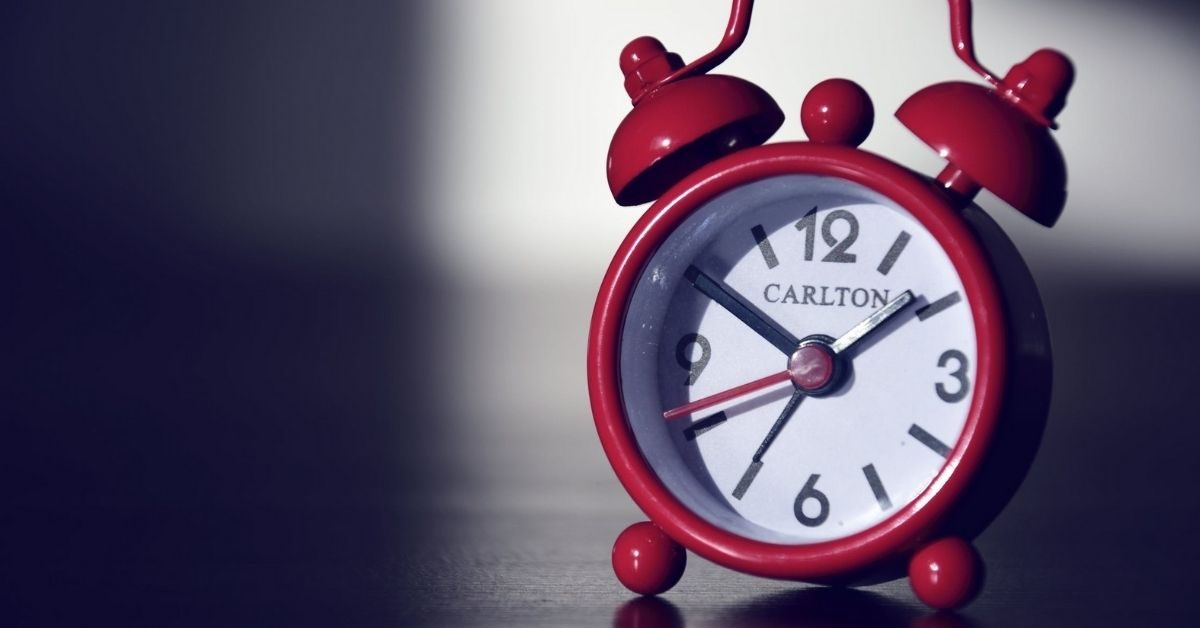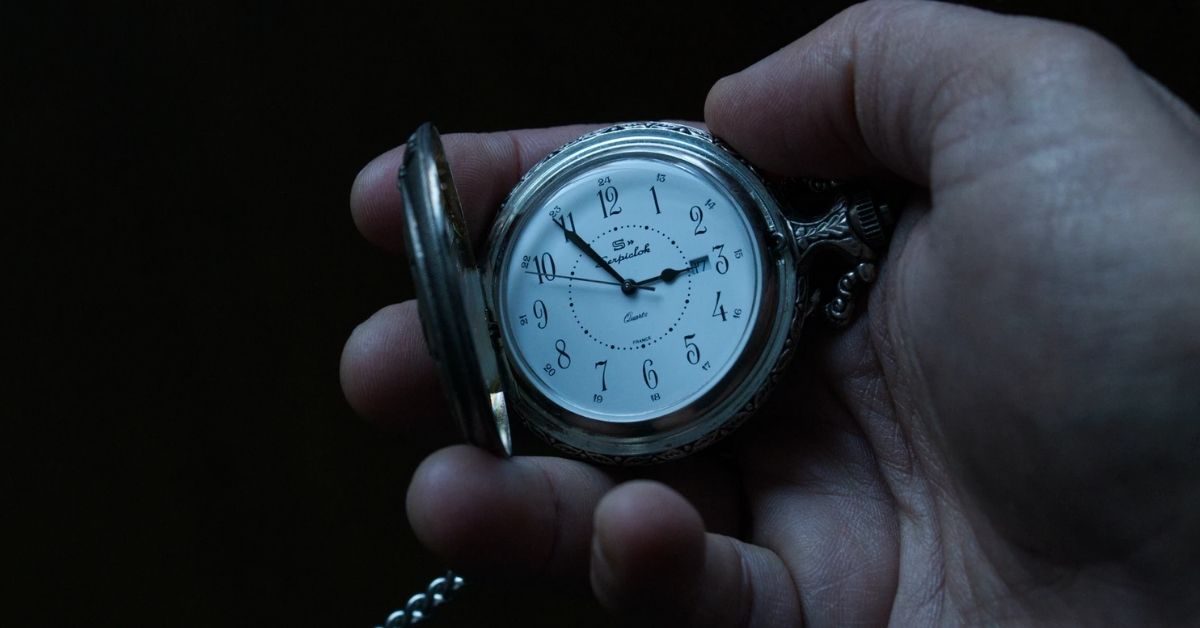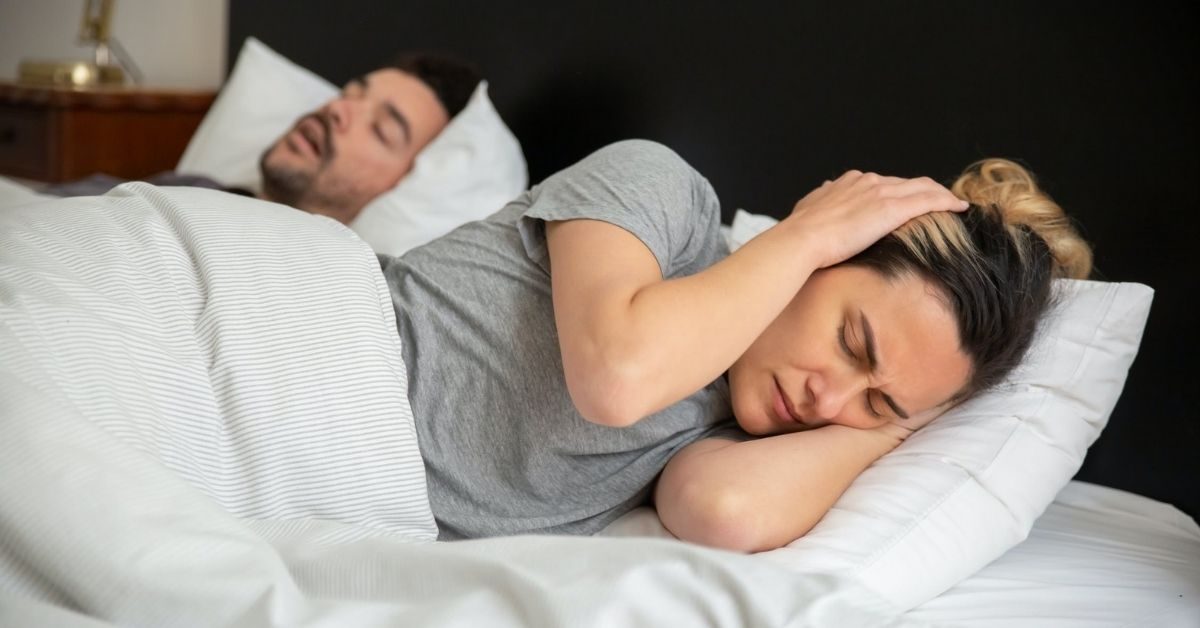If you are diligent with your fitness and nutrition regimen but the scale keeps ticking up or just not budging, a lack of sleep may be to blame. Weight gain and sleep have an intricate relationship.
No matter how hard you work in the gym or how many salads you eat, if you aren’t getting adequate sleep, you’ll put on weight.
Weight gain and sleep have a clear connection but there are ways that you can break the cycle of this unhealthy relationship.
Read on to learn how weight gain and sleep are connected and what you can do to finally see the weight loss results you have been working so hard for.
How Does Sleep Correlate with Weight Gain?

While there are many variables involved, sleep and weight can’t be overlooked in the obesity epidemic discussion.
Obesity is a leading cause for chronic diseases, like coronary heart disease, a stroke, certain types of cancer, and reproductive disorders. It is a leading risk factor for obstructive sleep apnea.
Excess weight and too little sleep are a dangerous duo according to Dr. Stuart Quan, sleep specialist and Professor of Sleep Medicine at Harvard Medical School. He explains,
“If a person is already overweight or obese, weight loss will be more difficult without adequate sleep.”
Weight gain and sleep, or more accurately, a lack of sleep have a dangerous cyclical relationship with each other.
Sleep deprivation causes weight gain and the more weight you put on, the more prone you are to sleep deprivation.
Weight gain and sleep are connected, according to Dr. Quan who says,
“Experimental studies indicate that sleep restriction leads to abnormalities in the processing of blood sugar (glucose) and changes in hormones that control appetite.”
If you want to sleep better at night, and avoid serious health conditions like cardiovascular disease, take action to get to a healthy weight before the effects of sleep deprivation leave you with no options.
9 Ways Weight Gain and Sleep Are Connected
Doctors and scientists say the link between sleep and weight gain is pretty clear. Study after study shows the relationship between sleep and weight.
You can improve sleep hygiene as a good starting point to getting better quality sleep but getting your weight under control is critical.
Here’s why.
1. Sleep deprivation makes you more hungry
The impact of sleep on the regulation of appetite is significant.
When you don’t get enough sleep, your appetite hormones respond and release more of the hunger hormone, ghrelin, and less of the satiation hormone, leptin.
According to Dr. Quan,
“With sleep restriction, levels of ghrelin rise and those of leptin fall, thus leading to an increase in hunger and appetite.”
Higher ghrelin levels stimulate your appetite which means you can expect a higher calorie intake. Lower leptin levels make you feel less full. The imbalance of these two is a double whammy for appetite regulation.
A higher caloric intake combined with poor sleep can add up over time and lead to subsequent weight gain.
To avoid this risk of weight gain, be mindful that if you’ve had a bad night of sleep, you may feel hungrier than normal. Just watch your caloric intake more carefully and aim for 7-9 hours of sleep every night.
2. Sleep loss reduces the amount you exercise

If you are feeling exhausted and your energy balance is off, chances are, you don’t have the energy for a 5-mile run or even a 20-minute walk around the block.
This reduction in physical activity is unhelpful if you are trying to reduce your body weight.
When you’re feeling tired, one of the last things you want to do is exercise. Science agrees.
Increased levels of fatigue resulting from lack of sleep may lower your energy level and capability to exercise.
Let’s imagine you do manage to get yourself to the gym despite having insufficient sleep. You may exercise but since you keep missing out on vital recovery time during the night, your body simply can’t handle the same amount of physical activity participation that a well-rested body could. This leads to injury which puts you back further.
3. Insufficient sleep makes you crave junk food

If you aren’t sleeping enough, studies show that you are more likely to make poor food choices and have a lower ability to regulate your food intake.
According to a recent study,
“Worse sleep quality and shorter sleep duration were associated with more food cravings, and worse sleep quality and hygiene were associated with higher appetitive drive to consume palatable food”
Instead of going for the potato chips when you know you’ve been getting poor sleep, consider a healthier option to help control your calorie intake.
If you’re waking up from a rough night’s sleep and need healthy breakfast options, try one of these recipes.
4. Fragmented sleep increases your risk of obesity
If you are experiencing sleep disturbances or sleep fragmentation, you may be putting yourself at greater risk of obesity.
Sleep fragmentation leads to poor sleep quality, which is a risk factor for obesity.
By improving your sleep hygiene, you will have a better chance of eliminating disturbed sleep and reducing your risk of obesity.
5. Short sleep duration causes weight gain

It’s not only about the quality of sleep you’re getting, but it’s also about the quantity.
Clinical studies show clear links between people who are short-duration sleepers (6 hours per night or fewer) and weight gain. Long-duration sleepers (7-9 hours per night) do not experience this.
As Dr. Quan explains,
“Studies also demonstrate that short sleepers don’t eat healthfully. Overall, their diets have less food variety, a greater percentage of calories from snacks, and higher amounts of sugar, caffeine, and alcohol. Furthermore, they tend to skip the main meals (breakfast, lunch, and dinner), and also tend to snack more. These habits promote weight gain and the eventual development of obesity.”
Short-duration sleepers are at a significant risk for weight gain while average-duration sleepers show no correlation with weight gain.
Aim for that sweet spot of 7-9 hours of sleep every night to help prevent weight gain.
6. Obesity results in sleep difficulties
There is a correlation with obesity in adults and children and reported sleep difficulties according to recent studies.
Plus, you may develop obstructive sleep apnea which can be fatal if left untreated.
Equally, hormone disruption from the weight gain can cause uncomfortable hot flashes and night sweats.
Poor sleep quality and even partial sleep deprivation can be the result of sleep difficulties.
Making an effort to lose some weight can lessen these sleep difficulties and get you on track to your goal weight.
7. You’re more likely to gain weight with a later bedtime

Night owls beware, if you have a later bedtime, studies show you have an increased likelihood of gaining weight compared to early birds.
Late sleepers’ circadian clocks experience disruption which may contribute to an increase in weight due to the subsequent hormonal imbalance. Plus, the calories from late night snacks can add up.
The good news is that there are plenty of great bedtime routine ideas that can help you to set and stick to more regular sleep times.
8. A higher BMI increases your risk of sleep disorders
Sleep disorders, whether temporary or chronic, are not something you want to endure.
There is research showing that a higher body mass index (BMI) is linked to sleep disorders.
If you are concerned that you may be suffering from a sleep disorder, you should contact your medical professional.
9. Weight gain can cause you to snore

Are you rattling the neighborhood awake with your snoring?
Snoring is mostly benign — just annoying. But, at its most dangerous, it can be an indicator of obstructive sleep apnea. One of the consequences of sleep apnea can be death, so it’s nothing to mess around with.
Not to mention that snoring can cause major sleep disturbances for your partner.
Losing some weight can alleviate or help you stop snoring.
Don’t know what to do if your partner snores? There are some solutions that you can try now to help your partner while they work on their weight loss. Check out the article here.
To Sum Up…
The association between sleep and weight gain could not be clearer.
The dangerous cycle between sleep deprivation and weight gain can be broken if you increase your awareness and take steps to break the loop.
If you find that you get hungry before bed but you want to cut out unhealthy snacks and keep your calorie intake under control, try these bedtime snack tips.

Welcome to Snoozerville! I’m Dr. Alex Hartley, your guide to the world of restful sleep. With a Ph.D. in Sleep Science and years of experience as a sleep therapist, I’ve dedicated my life to understanding and improving sleep quality. My passion lies in uncovering the mysteries of sleep and sharing practical, science-backed advice to help you achieve the best rest possible. Beyond my academic pursuits, I’m an advocate for mindfulness and relaxation techniques, which I incorporate into my daily routine. At Snoozerville, I aim to transform your nights, combining the latest research with easy-to-implement tips. Whether you’re a chronic insomniac or just looking to improve your sleep hygiene, join me on this journey towards peaceful, rejuvenating sleep.

